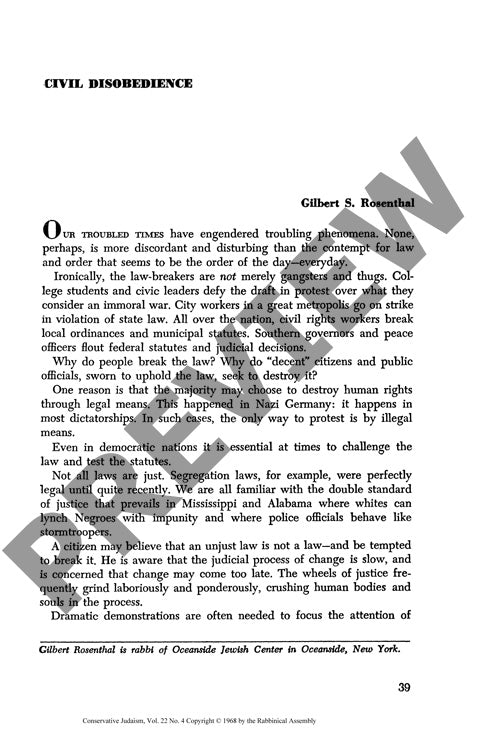Civil Disobedience
Couldn't load pickup availability
When does religious tradition permit breaking secular law? Jewish legal sources reveal three crucial circumstances that justify civil disobedience: laws mandating idolatry, sexual immorality, or murder; attempts to destroy religious practice; and discriminatory or arbitrary governance. Through historical-analytical examination of Jewish perspectives from biblical times to modernity, a coherent framework emerges for principled resistance guided by religious law rather than individual conscience alone. Key Talmudic principles, particularly "the law of the kingdom is law," demonstrate how Jewish scholars historically limited monarchical power while establishing conditions for legitimate resistance. From the Hebrew midwives' defiance of Pharaoh to the Maccabean revolt, prophetic resistance to unjust kings, and the Warsaw Ghetto uprising, Jewish tradition has consistently supported civil disobedience when transcendent moral values are threatened. This support remains conditional on resistance methods being proportionate to the stakes involved and legal remedies being exhausted first. While Judaism generally advocates law-abiding behavior for social stability, it simultaneously recognizes that blind obedience to unjust laws can enable atrocities, as demonstrated by Nazi Germany.

More Information
-
Physical Description
-
Publication Information
Published 1968
ISBN
-
Publication Credits
Gilbert Rosenthal

